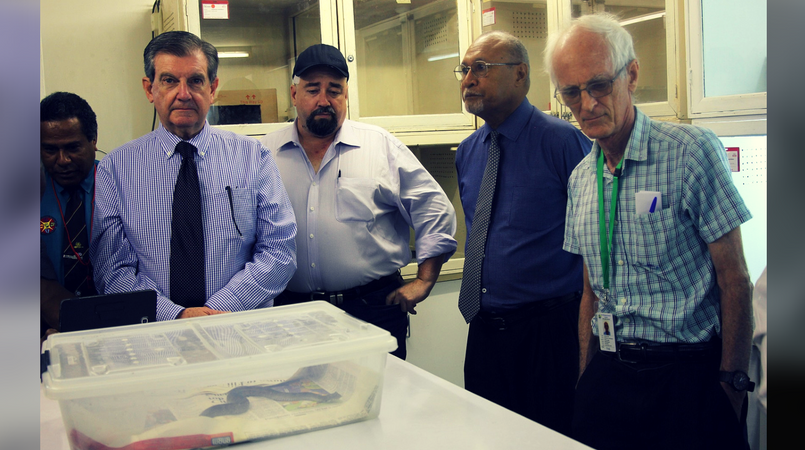
A new partnership to help save the lives of people bitten by venomous snakes has been launched in Port Moresby.
The ‘PNG Snakebite Partnership’ is a three-year project involving the National Department of Health, the Australian Government, Seqirus Pty Ltd, and the Charles Campbell Toxinology Centre (CCTC), at the University of Papua New Guinea (UPNG).
The project is intended to significantly improve access to antivenoms by combining a large antivenom donation, healthcare worker training, with a purpose-built distribution and product management system.
Seqirus Pty Ltd (a subsidiary of CSL, an Australian biopharmaceutical company) will provide an annual donation of 600 vials of snake and marine creature antivenoms to PNG. This is more than triple the amount of antivenom currently purchased annually by the PNG National Department of Health and the donation is valued at more than PGK2.5 million annually.
The Australian Government will support the management of the antivenoms and training of health workers on snakebite management through a PGK1.1million (AUD$450,000) contribution. This will be delivered by the CCTC, a collaborative partnership between the UPNG and the University of Melbourne.
CCTC operates the snakebite clinic at Port Moresby General Hospital and will offer two new postgraduate Master of Medical Science scholarships to UPNG students as part of the provision of comprehensive monitoring and evaluation services and health worker training under the project.
At yesterday’s launch, Sir Puka Temu, PNG Minister for Health and HIV, said: “Snakebite remains a very serious public health issue in PNG, affecting many hundreds of people every year, and the O’Neill government is determined to improve access to life-saving medicines.
“Antivenoms are very expensive to purchase and we welcome Seqirus’ decision to provide this large amount free-of-charge.”
Dr. Lorna Meldrum, Vice President Asia Pacific Commercial Operations of Seqirus, said: “We hope to significantly improve access to antivenoms. This donation should mean there will be more antivenoms, where they are needed, when they are needed.”
The partnership was announced yesterday at CCTC’s laboratory at UPNG.
More than 50 wild-caught and captive bred Papuan taipans and other venomous snakes are housed at CCTC so that their venom can be used for research purposes.
A first shipment of antivenom arrived in Port Moresby on 12 April and a further 140 vials are scheduled to arrive by the end of April.
The manufacture of Seqirus’ range of antivenoms is supported through funding by the Australian Government Department of Health.
(The delegates on a tour inside the Serpentarium)
